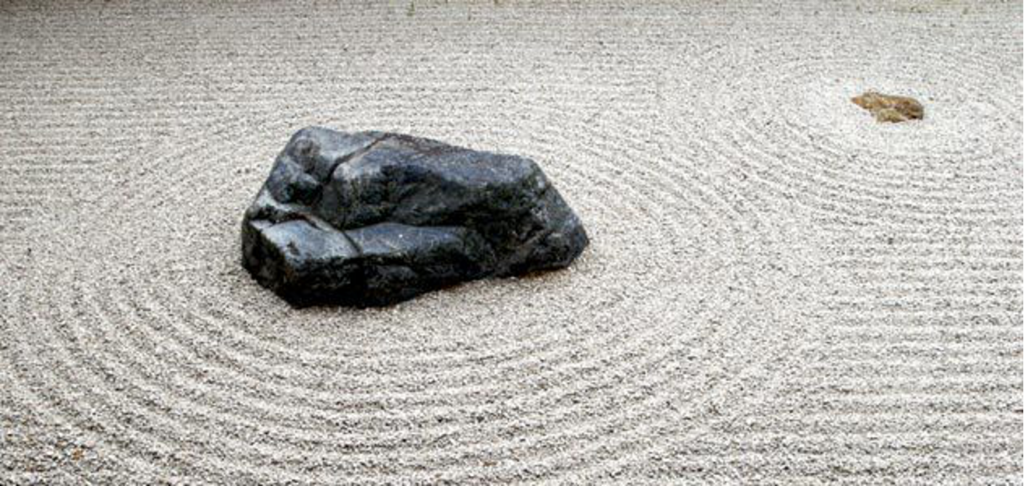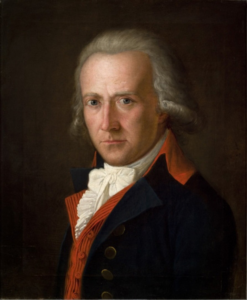Song of life
(Poet's title: Lebenslied)
Set by Schubert:
D 508
[December 1816]
D Anh. I, 23
for trio or quartet
fragment[1815 or 1816]
Kommen und Scheiden,
Suchen und Meiden,
Fürchten und Sehnen,
Zweifeln und Wähnen,
Armut und Fülle, Verödung und Pracht
Wechseln auf Erden wie Dämmrung und Nacht.
Fruchtlos hienieden
Ringst du nach Frieden!
Täuschende Schimmer
Winken dir immer;
Doch, wie die Furchen des gleitenden Kahns,
Schwinden die Zaubergebilde des Wahns!
Auf zu der Sterne
Leuchtender Ferne
Blicke vom Staube
Mutig der Glaube:
Dort nur verknüpft ein unsterbliches Band
Wahrheit und Frieden, Verein und Bestand!
Günstige Fluten
Tragen die Guten,
Fördern die Braven
Sicher zum Hafen,
Und, ein harmonisch verklingendes Lied,
Schließt sich das Leben dem edlen Gemüt!
Männlich zu leiden,
Kraftvoll zu meiden,
Kühn zu verachten,
Bleib unser Trachten!
Bleib unser Kämpfen! in eherner Brust
Uns des unsträflichen Willens bewusst!
Coming together and splitting up,
Searching and avoiding,
Worrying and longing,
Doubting and imagining things,
Poverty and plenty, barrenness and splendour,
They alternate on earth like twilight and night!
Down here it is pointless
For you to struggle for peace!
Will o’ the wisps
Will always try to attract your attention;
But, like the furrows cut by the gliding boat,
The magical images of delusion disappear!
Up to the stars
Which light up the far distance,
We look up from the dust
With courageous faith:
Only there is an immortal connection made,
Truth and peace, union and continuity!
Propitious high tides
Carry those who are good,
They support those who are worthy,
Taking them safely into harbour,
And, in the form of a harmonious, fading song,
Life comes to a close for those who are noble in spirit!
To suffer in a manly way,
To avoid whilst full of strength,
To scorn boldly,
May we continue to strive!
May we continue to battle! In an iron breast
Conscious of our blameless determination!
All translations into English that appear on this website, unless otherwise stated, are by Malcolm Wren. You are free to use them on condition that you acknowledge Malcolm Wren as the translator and schubertsong.uk as the source. Unless otherwise stated, the comments and essays that appear after the texts and translations are by Malcolm Wren and are © Copyright.
☙
Themes and images in this text:
Boats and ships Chest / breast Courage Detours and delusions Dust The earth Eternity Evening and the setting sun Fighting and wrestling Floods and tides Harmony Iron Knots and bonds Longing and yearning Lost and found Magic and enchantment Near and far Night and the moon On the water – rowing and sailing Pain Songs (general) Stars War, battles and fighting Will o’the wisp (ignis fatuus)
On a less grandiose level, we all find life frustrating. Commuters continually battle to get from A to B only to repeat the struggle to get from B to A a few hours later. The team that won the cup last year have to compete all over again in an attempt to win it again. The clothes that we washed last week need washing and ironing again now. If it isn’t one thing, it’s something else. As Matthisson puts it, there is no point struggling on earth to find rest or peace since things are always in flux.
Possibly even more disconcerting than all of this flux is the fact that we are perpetually falling prey to illusion and delusion. Things that seem important and valuable at a particular point in our lives are later revealed to be worthless or simply mistaken. When we look at the marks left in the wake of a passing boat we might be convinced that the water has been cut up like the soil in a ploughed field, yet these furrows soon give way to a smooth surface as the wave passes. Matthisson is guiding us through similar thought processes to those encouraged by the designers of Zen gardens in Kyoto, Japan (though he could not have known about those). In contemplating raked gravel, stones and moss, the devotee is urged to see the same thing as water, as cloud, as fields and ultimately to reflect on the fact that our perceptions of reality are merely that – perceptions, not reality itself. Our delusions lead us to an awareness of our limited ability to grasp the world

We therefore need to look to another dimension. Here we are in the dust, where everything falls apart, but as we focus on the light of the stars we can observe a realm where things come together and fuse into meaningful reality. This turn from the earthly to the heavenly is also connected with a changed focus from experience and perception towards ethics and action. We are no longer in search of ‘truth’, we are using ‘courage’ to embody faith.
It is not those who know or understand how things are that win through, rather it is those who are ‘good’ or ‘worthy’. These people find themselves being carried on floods that take them safely into harbour. The song of their life is harmonious.
The final stanza summarizes the moral characteristics needed for such a life. Acceptance of suffering is part of it (but it seems unfortunate, to say the least, that Matthisson associates such a quality with being ‘man-like’; many women would be able to give plenty of examples of their ability to bear necessary pain, not least in childbirth). Then comes ‘avoiding’ whilst knowing your own strength (in other words not abusing your power and deliberately not resorting to force when you could have done so). The third and final virtue might be surprising, but it is not difficult to see the argument for it: ‘being keen in our scorning’. Knowing who to despise (and why) will surely help us strengthen our determination to avoid certain behaviours and attitudes. It is a way of strengthening our ‘iron breast’.
Having stated at the outset that there is no point struggling to find peace on earth, Matthisson concludes that what we need to do is continue to strive and do battle. However, the purpose is not to find rest or an escape from the uncertainties of life but rather to assert our willpower and boldly take on the world.
☙
Original Spelling Lebenslied Kommen und Scheiden, Suchen und Meiden, Fürchten und Sehnen, Zweifeln und Wähnen, Armuth und Fülle, Verödung und Pracht Wechseln auf Erden wie Dämmrung und Nacht! Fruchtlos hienieden Ringst du nach Frieden! Täuschende Schimmer Winken dir immer; Doch, wie die Furchen des gleitenden Kahns, Schwinden die Zaubergebilde des Wahns! Auf zu der Sterne Leuchtender Ferne Blicke vom Staube Muthig der Glaube: Dort nur verknüpft ein unsterbliches Band Wahrheit und Frieden, Verein und Bestand! Günstige Fluthen Tragen die Guten, Fördern die Braven Sicher zum Hafen, Und, ein harmonisch verklingendes Lied, Schließt sich das Leben dem edlen Gemüth! Männlich zu leiden, Kraftvoll zu meiden, Kühn zu verachten, Bleib' unser Trachten! Bleib' unser Kämpfen! in eherner Brust Uns des unsträflichen Willens bewußt!
Confirmed by Peter Rastl with Gedichte von Friedrich von Matthisson. Erster Theil. Tübingen, bei Cotta, 1811, pages 109-110; and with Taschenbuch für Damen auf das Jahr 1811.Tübingen in der J. G. Cotta’schen Buchhandlung, pages 10-11.
To see an early edition of the text, go to page 109 [131 von 380] here: http://digital.onb.ac.at/OnbViewer/viewer.faces?doc=ABO_%2BZ185186703


